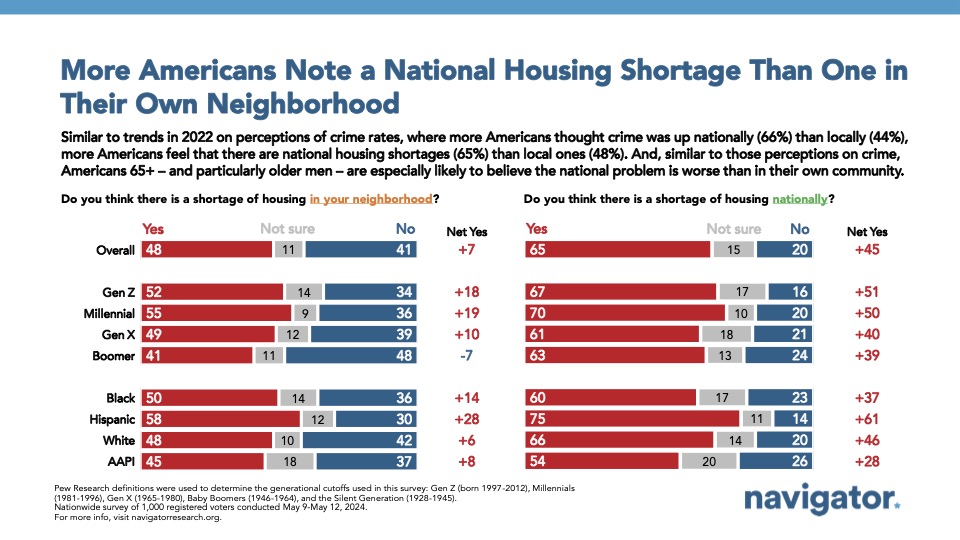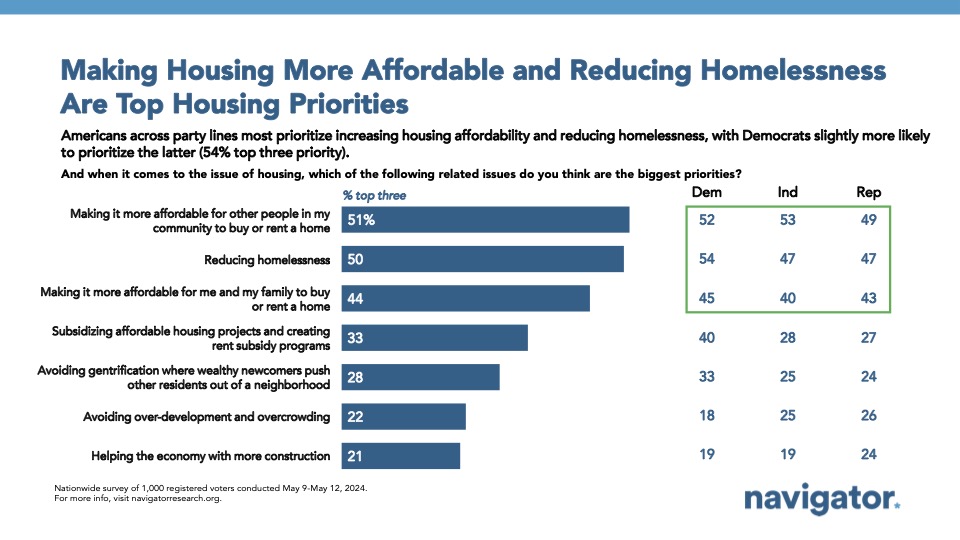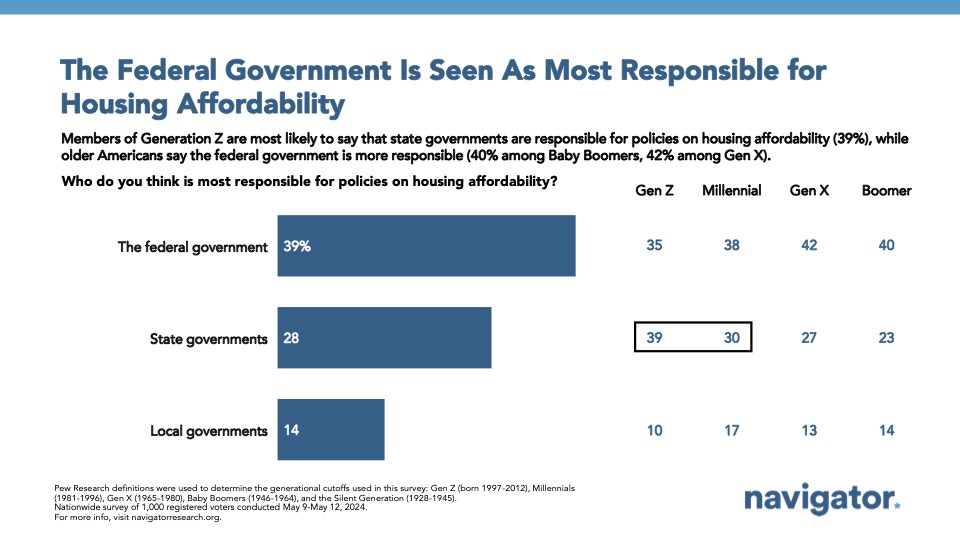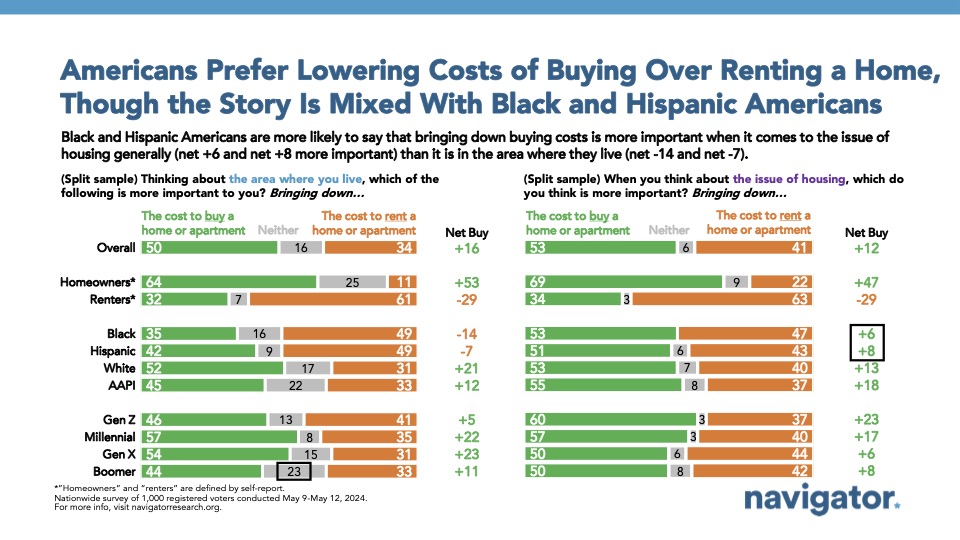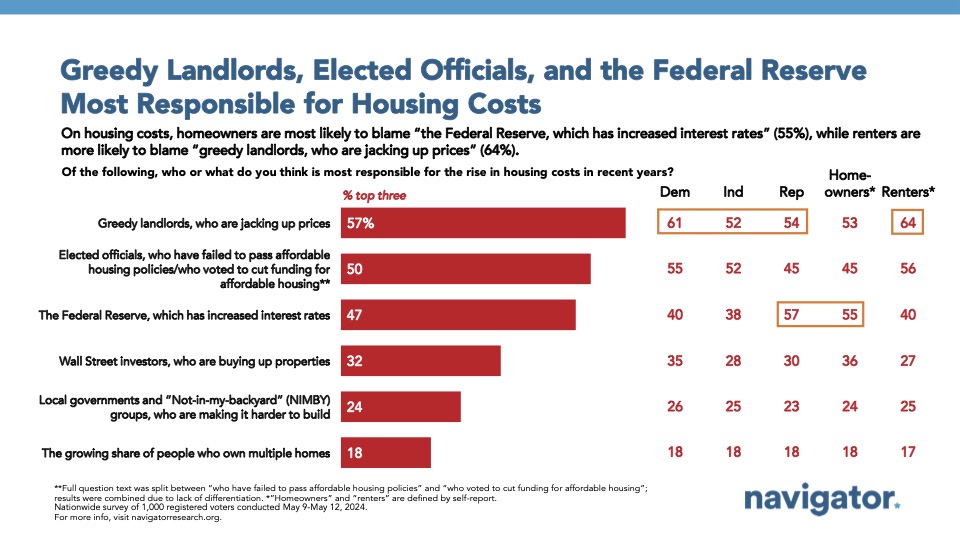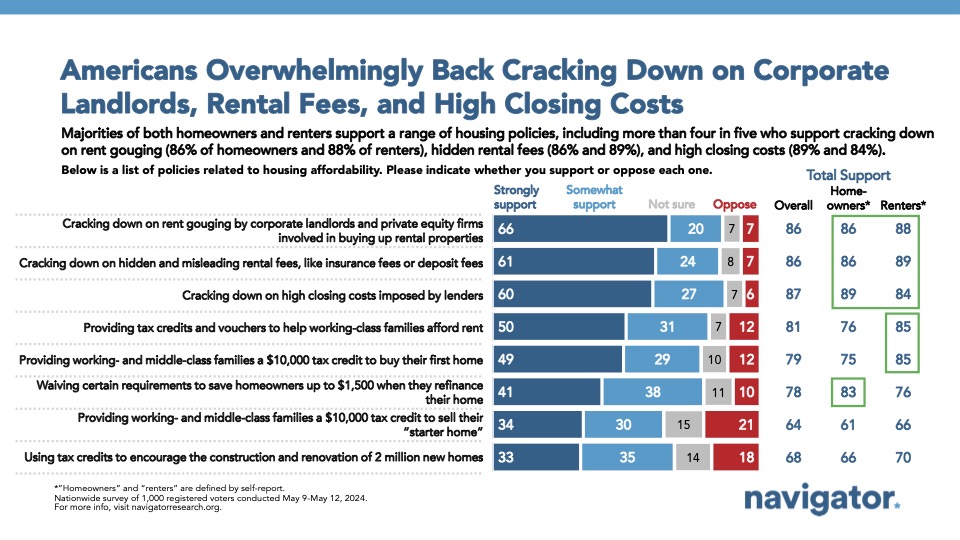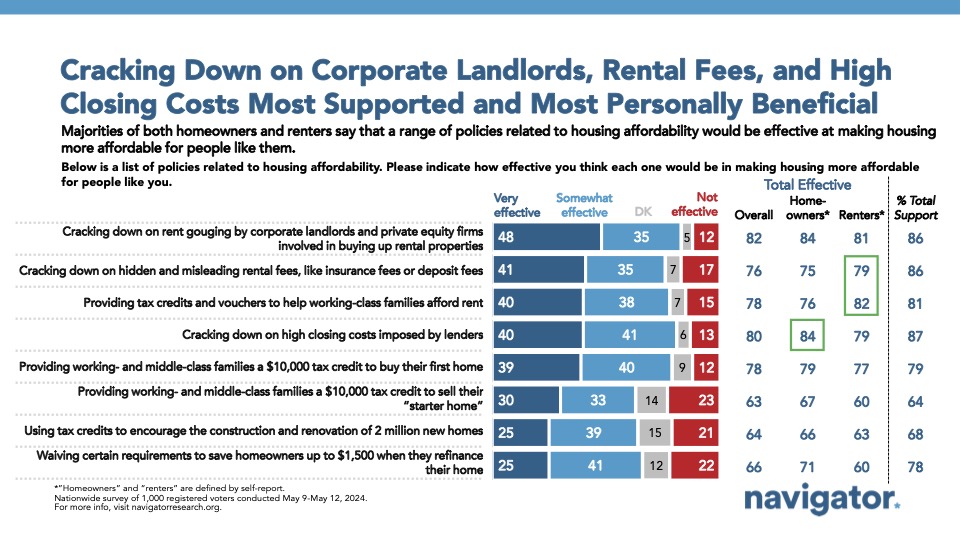Poll: Housing, Rent, and Home Ownership
This Navigator Research report contains polling data on the latest perceptions of housing, including whether Americans believe there is a housing shortage in their community or in the country, who is to blame for the rising cost of housing, and what policies Americans would like to see enacted to lower housing costs.
The federal government is viewed as most responsible for policies on housing affordability.
Two in three Americans think there are housing shortages nationally, while fewer than half are noticing shortages in their own neighborhoods. 65 percent of Americans think there is a shortage of housing nationally while significantly fewer believe there is a shortage of housing in their neighborhood (48 percent). A majority across party lines believe there is a shortage of housing nationally, including 73 percent of Democrats, 61 percent of independents, and 58 percent of Republicans.
- Groups that are most likely to think there is a housing shortage in their neighborhoods include majorities of Hispanic Americans (58 percent), those under the age of 35 (56 percent), those living in cities (56 percent), and those who rent their house or apartment (56 percent). Nearly two in three who are unfavorable to both Biden and Trump also believe there is a nationwide housing shortage (64 percent).
Making housing more affordable and reducing homelessness are top priorities for Americans when it comes to housing.
Most Americans say making housing more affordable for people in their communities is one of their biggest housing priorities (51 percent), followed by reducing homelessness (50 percent), and making housing more affordable for their own families (44 percent). Making housing more affordable (53 percent of independents, 52 percent of Democrats, and 49 percent of Republicans) and reducing homelessness 54 percent of Democrats, 47 percent of independents and 47 percent of Republicans) are the biggest housing priorities across party lines. Among renters, 59 percent say making housing more affordable for themselves and their families is a big priority compared to 32 percent of homeowners who say the same.
- A plurality of Americans believe the federal government is most responsible for policies on housing affordability (39 percent), with 28 percent who believe state governments are most responsible, and 14 percent who say the same about local governments).
- By 16 points, more Americans think it is more important to bring down the cost of buying a home in the area where they live (50 percent) than making rent more affordable (34 percent). Among Americans who rent their home, three in five say it is more important to bring down the cost to rent in the area where they live (61 percent) than to bring down the cost of buying a home (32 percent).
- When thinking about the issue of housing in general, Americans similarly believe bringing down the cost of buying a home (53 percent) is more important than bringing down the cost to rent a home or apartment (41 percent).
Americans most blame greedy landlords, elected officials, and the Federal Reserve for the rise in housing costs.
Majorities across party lines believe greedy landlords are most to blame for rising housing costs, with an overwhelming majority supporting cracking down on rent gouging. 57 percent say greedy landlords who are jacking up prices are responsible for rising housing costs including majorities across partisanship, with 61 percent of Democrats, 54 percent of Republicans, and 52 percent of independents blaming greedy landlords most. More than four in five support cracking down on rent gouging by corporate landlords (86 percent), think cracking down on rent gouging by corporate landlords would be effective in helping people like them afford housing (82 percent), and support cracking down on hidden and misleading rental fees, like insurance fees or deposit fees (86 percent).
- 50 percent of Americans also blame elected officials who have failed to pass affordable housing policies or voted to cut funding for affordable housing for the rise in housing costs in recent years, including a majority of Democrats (55 percent) and independents (52 percent).
- Americans living in households earning less than $100,000 per year believe cracking down on rent gouging by corporate landlords would be the most effective policy in helping people like them (83 percent).
- 84 percent of Black Americans believe cracking down on high closing costs imposed by lenders would be effective in helping people like them make housing more affordable, including 55 percent who believe such an action would be “very” effective.

